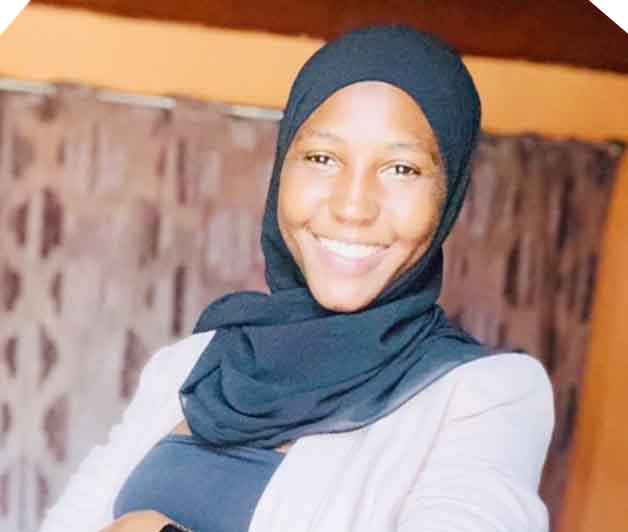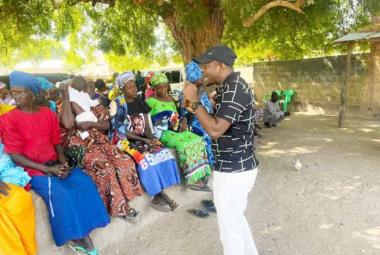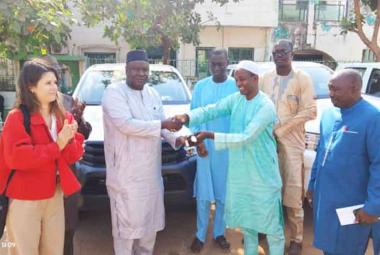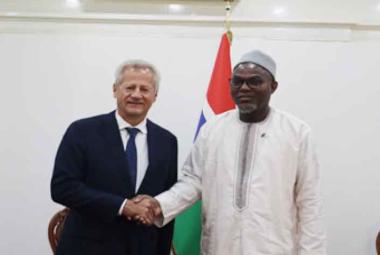By Zainab Jobarteh
In the wake of rising global awareness about gender-based violence, the commencement of the annual “16 Days of Activism Against Gender-Based Violence’’ marks a pivotal moment in the collective pursuit of a safer and more equitable world.
Though there are a number of activists and organisations working tirelessly to break the silence and challenge the status quo, gender-based violence still remains a deeply-rooted societal challenge in The Gambia that demands more attention.
In an interview with Satang Dumbuya, Advocacy and Campaign Officer of Network Against Gender-Based Violence (NGBV), she said as part of observing 16 Days of Activism Against Gender-Based Violence, her organisation is focused on working with HE FOR SHE, an organisation NGBV had given birth some years ago.
‘‘HE FOR SHE, currently known as Men for Equality, promotes the active participation and involvement of young men and boys in ending violence against women through positive masculinity,’’ she explained.
Ms. Dumbuya underscored the importance of men’s participation in the fight against gender-based violence. She said violence against women has long been talked about but without the active involvement of men, and though activism has been going on for a while, they have realised that they might not reach a solution without the participation of men.
Asked about the changes she has observed so far in the country’s fight against gender based violence, she mentioned an improvement in reporting and a raise in awareness.
She informed that through their different one-stop centres in the regions, they are able to collect data on some of the violence conducts that have been meted on boys, girls and women.
Another important change she mentioned is data, stating that with data, one can do a lot of references and ‘‘you are sure of what happened’’.
Ms. Dumbuya admitted that there is still a massive issue of under-reporting, however, she said there are cases that are being reported and are brought to them by the different one-stop centres and the toll-free numbers that the government and the parastatals have launched.
On the issue of challenges,she mentioned behavioral change, noting that some people are still in denial, refusing to see violence against women as a human rights violations and making it as part of ‘‘our culture’’.
‘‘A significant challenge we face is the implementation of the law. People are doing whatever they want to do because they feel that the law is not being implemented or it is a Jammeh law and Jammeh has gone with some of these laws,’’ she lamented.
NGBV is involved in a number of initiatives to address inequality; one of these initiatives, Ms. Dumbuya said is Survival Support. She explained that they offer psychosocial support to the different survivors through their one-stop centres across the country and train service providers such as doctors, police and social workers on case management and how to deal with survivors.
Asked how far The Gambia has come in the fight against gender-based violence, Ms. Dumbuya responded: ‘‘Gambia has come very far. Through the fight against sexual and gender based violence, Gambia is able to attract international attention on the work that activists are doing. We are able to change lives and perspectives’’.
She further said that Gambia has laws that reflect the rights of women and men, laws that are promoting gender equality and equity, and that globally, Gambia is known for being one of the countries with the best laws that protects the rights of women, boys and girls.







